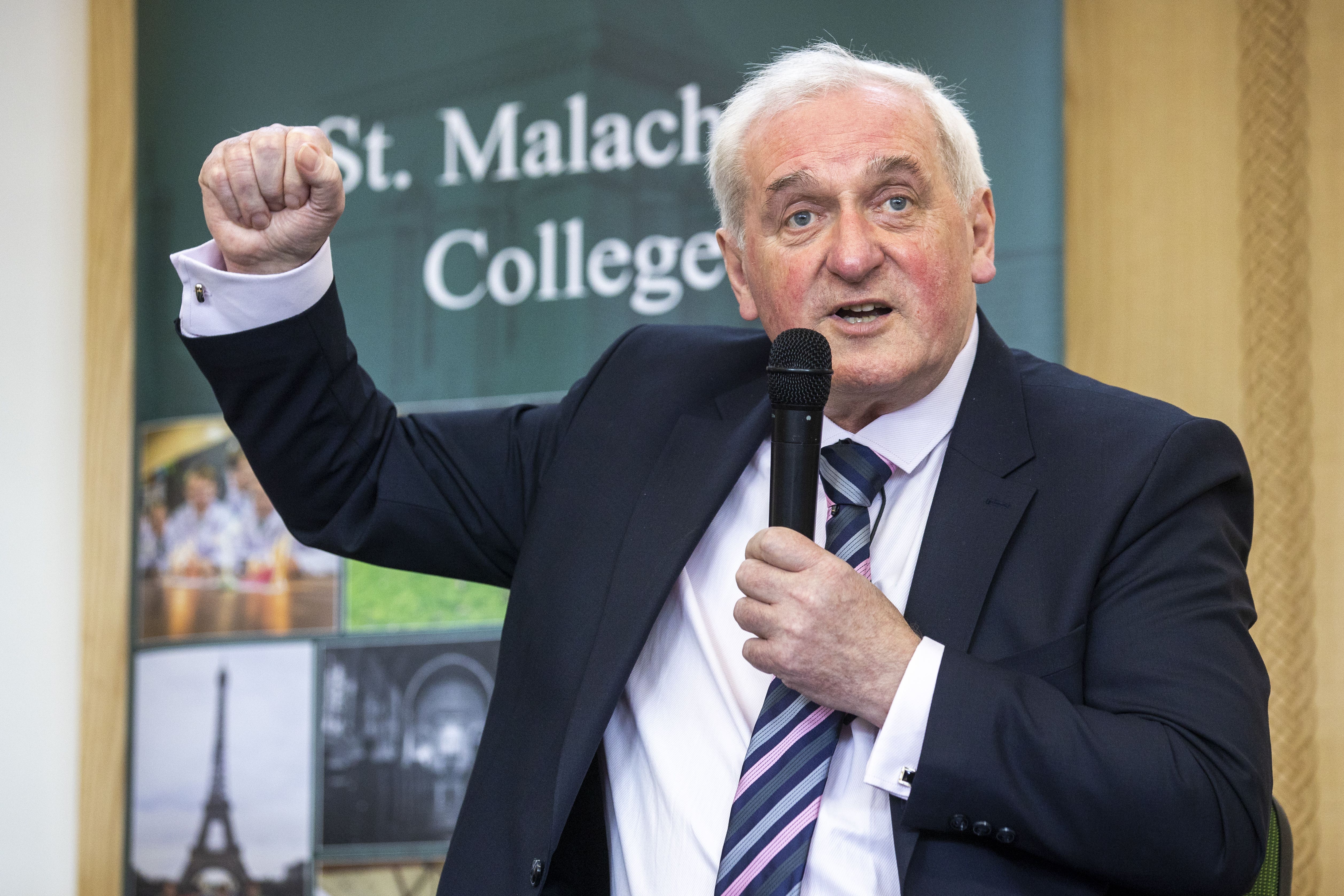More work was needed on legacy of Troubles in 1998, says Bertie Ahern
The former taoiseach said legacy was one of the outstanding issues unresolved from the Troubles.

Your support helps us to tell the story
From reproductive rights to climate change to Big Tech, The Independent is on the ground when the story is developing. Whether it's investigating the financials of Elon Musk's pro-Trump PAC or producing our latest documentary, 'The A Word', which shines a light on the American women fighting for reproductive rights, we know how important it is to parse out the facts from the messaging.
At such a critical moment in US history, we need reporters on the ground. Your donation allows us to keep sending journalists to speak to both sides of the story.
The Independent is trusted by Americans across the entire political spectrum. And unlike many other quality news outlets, we choose not to lock Americans out of our reporting and analysis with paywalls. We believe quality journalism should be available to everyone, paid for by those who can afford it.
Your support makes all the difference.More work should have gone into addressing the legacy of the Northern Ireland Troubles when the Good Friday Agreement was signed, former taoiseach Bertie Ahern has said.
Mr Ahern said the legacy issue was still outstanding 25 years on from the historic peace deal, with new generations seeking answers about victims of violence.
Mr Ahern was speaking, alongside Sir Tony Blair, to a group of school pupils in Belfast when he was asked was there anything he would have done differently around the Good Friday Agreement.
He said at the time talks chairman George Mitchell had set a deadline of Holy Thursday for a deal, which eventually ran into Good Friday.
If you ask me today could I go back, I definitely would have worked harder on the chapter on legacy of the Troubles
He added: “We had to rush a lot of things.
“If you ask me today could I go back, I definitely would have worked harder on the chapter on legacy of the Troubles.
“I have spent so much of my life since meeting families who have family members who have died or were injured.
“Even recently I met two different groups, one in Belfast, one in Dublin, in the last few weeks.”
The former taoiseach said it was very hard to talk to political parties in Northern Ireland about legacy at the time.
“I remember to the parties at one stage after the Good Friday Agreement saying to them I had met (FW) De Klerk and (Nelson) Mandela in Dublin and I asked them to tell me about the South Africa model.
“I said to the political parties who were associated with paramilitaries how about doing something on peace and reconciliation.
“I don’t want to be funny about it but I was nearly in the room on my own after half an hour. There weren’t many takers around.
“Maybe we should have done something, but to look back and say everybody was signed up for legacy issues in 1998 wouldn’t be telling the truth.”
New UK Government legislation to deal with the legacy of the Troubles proposes offering immunity for people accused of crimes during the Troubles as long as they co-operate with a new truth recovery body.
It would also stop future court processes or inquests.
Now I am meeting delegations with young people who weren't born in 1998, but wondering what happened to their grandfathers
However, victims’ groups, as well as the political parties in Northern Ireland and the Irish Government, have criticised the Bill.
Mr Ahern told the group of young people that Northern Ireland still has a problem dealing with families traumatised from incidents during the years of violence.
He said: “I am watching it now going back into generations.
“Now I am meeting delegations with young people who weren’t born in 1998, but wondering what happened to their grandfathers.
“It is still an outstanding issue.”